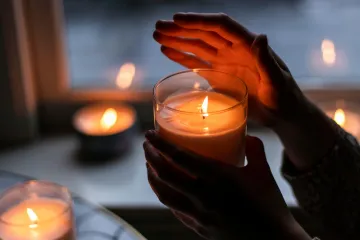Gun Violence Is Trauma
Whether you've experienced gun violence firsthand or have learned about it on the news, you've experienced a form of trauma. So, what is trauma exactly? It's our physical, mental, and emotional response to a distressing or deeply disturbing event that surpasses our ability to cope.
Our body can experience any event that shakes our sense of reality, threatens us physically, mentally, or emotionally, or that we don't have the knowledge or resources to navigate as trauma. These events can occur in many ways, including but not limited to:
- direct involvement in a distressing or threatening event
- learning about a disturbing situation
- direct or indirect exposure to others in a distressing situation
Common Reactions to Gun Violence
- Fear
- Anger
- Helplessness
- Hopelessness
- Grief
- Guilt
- Confusion
- Numbness
- Desensitization
Healing is not One-Size-Fits-All
Trauma can happen after just one event or after a series of events, and how we experience it can change over time. Trauma impacts us in different ways, and there's no right or wrong way to feel.
Navigating the effects of gun violence can be especially challenging and confusing. However you may feel, your experience is valid and you are not alone. We hope the resources on this page can help you in your journey.
Prioritize Your Wellbeing
Self-care is always essential, but especially so after exposure to trauma. Self-care may look different for you right now, and that's ok. Depending on how you're feeling, you may need to focus more on finding a sense of safety, calming your body, and connecting with people you trust.
Self-care strategies following exposure to gun violence:
Remain mindful of media.
Avoid overexposure to news stories and images that retraumatize you.
Calm Your Body
Trauma puts your body into fight-flight-freeze. Do what helps you feel grounded and safe.
Find an Outlet
Use whatever form of self-expression resonates with you to help you process your emotions.
Rebuilding a Sense of Safety
Gun violence anywhere can make you feel unsafe. Whether it's a movie theater, mall, school, church, or on a street, whether it was a gun presence or a mass shooting, wanting to avoid public places and feeling hyperaware of anything that looks suspicious are understandable reactions.
There's no timeline to going back to the way things were or doing the things you used to do, but there might be some signs where you could use some extra support from a mental health counselor. Those signs include:
- if it's interfering with your daily life
- if you're feeling extreme distress
- if the intensity of your fear feels like it's not changing
Additional Resources
Following trauma and tragic events, we can feel alone, confused, or even helpless. We may not have the words to describe our experience let alone feel capable of talking about them. You don't have to navigate or make sense of gun violence alone. Nationwide, there are groups, activists, and students leading the way in having conversations about gun violence.
Here are some resources that can help:


